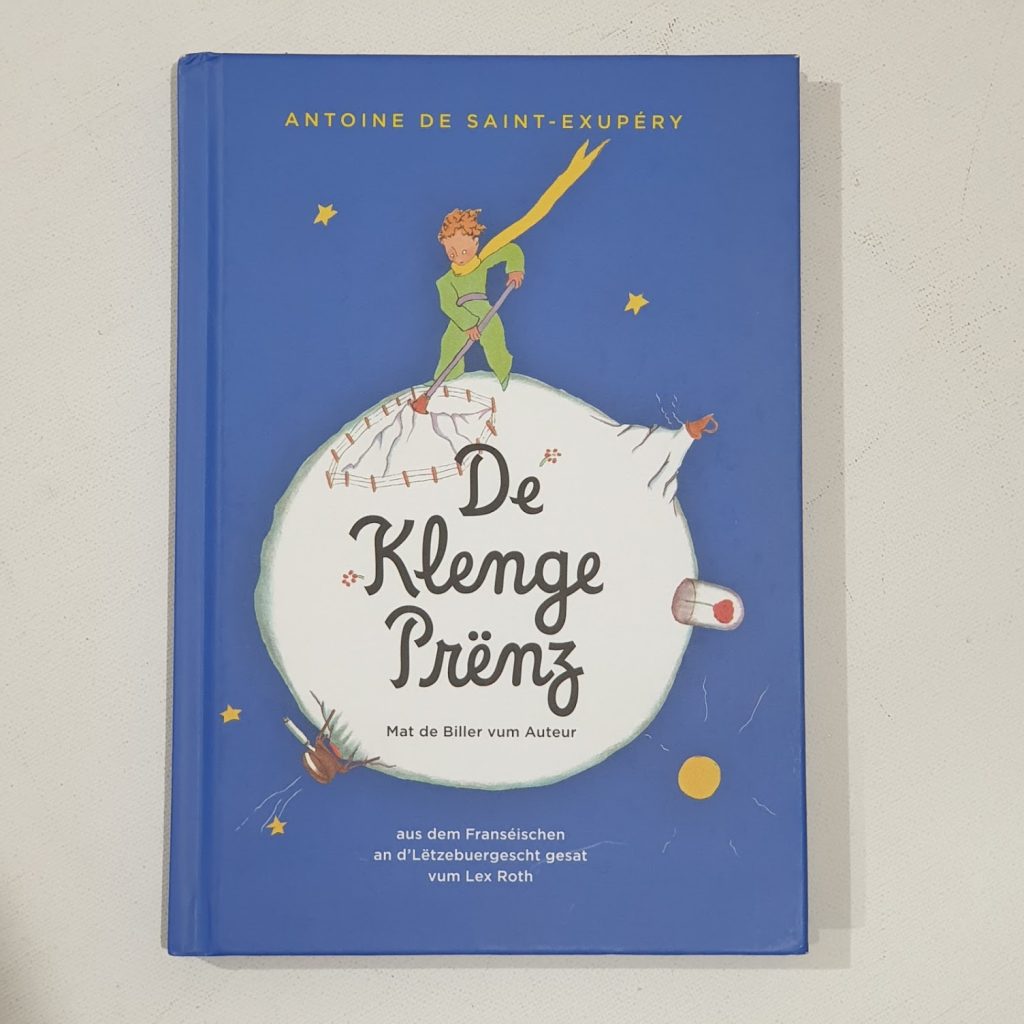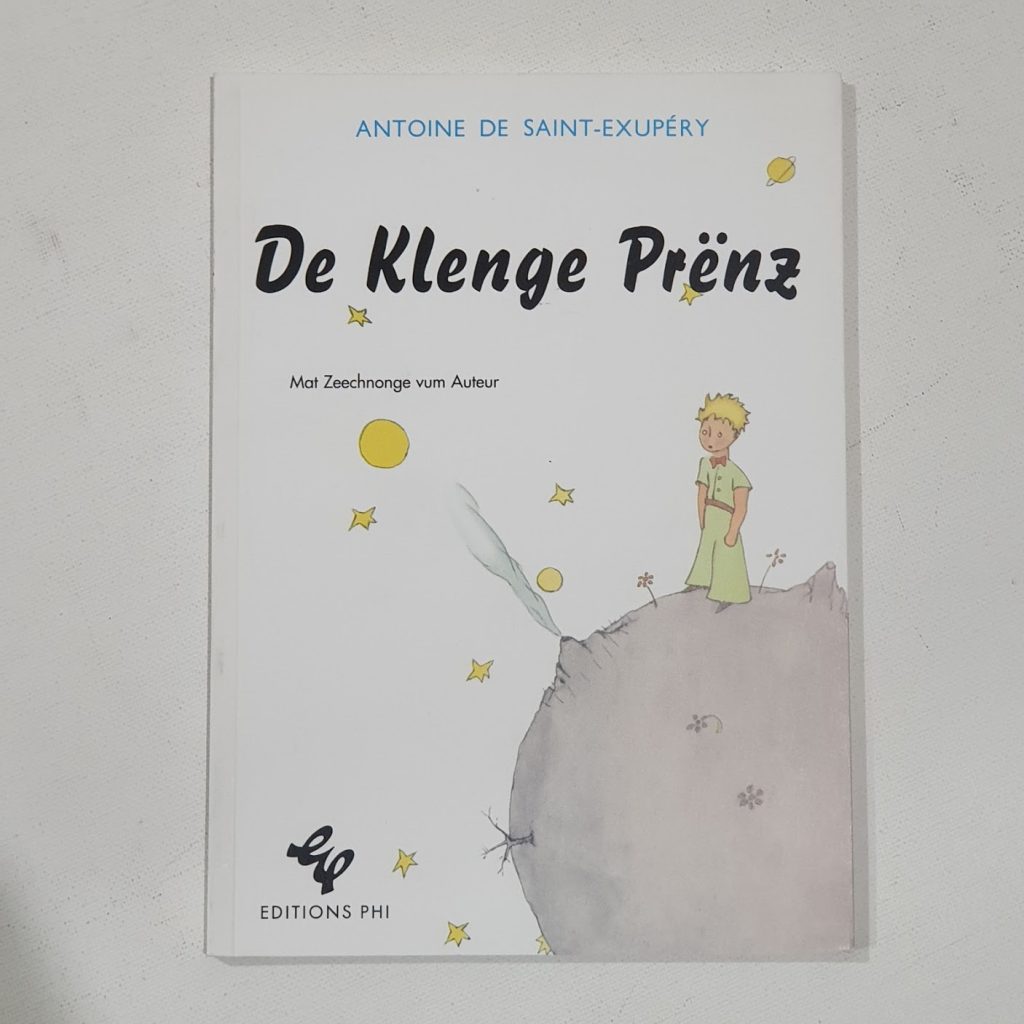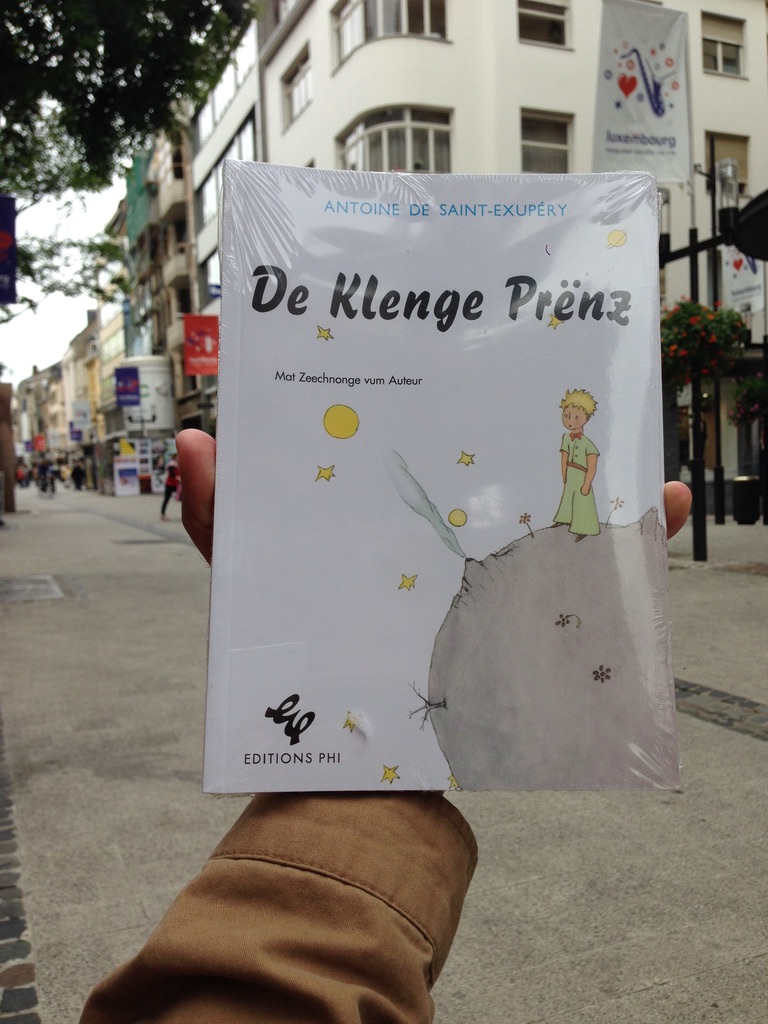
De Klenge Prënz, in Luxembourgish.
Luxembourgish, or Lëtzebuergesch, is a West Germanic language spoken predominantly in Luxembourg, where it holds the status of the national language and is one of three administrative languages, alongside French and German. Luxembourgish has its roots in the Moselle Franconian dialects, which are part of the larger group of High German languages, and it has evolved to form its own distinct identity.
Luxembourgish emerged from a variety of Middle High German spoken in the medieval Duchy of Luxembourg. Over centuries, it absorbed influences from neighbouring languages, including French and standard German, reflecting the region’s complex history and Luxembourg’s role as a crossroads in Europe. Despite these influences, Luxembourgish has maintained a consistent core of linguistic features that distinguish it from its Germanic cousins.

Luxembourgish phonology is characterised by the use of umlauts and a distinctive vowel system that includes nasal vowels, somewhat similar to French. The language’s intonation patterns also help differentiate it from German and other Germanic languages. Its grammar shares similarities with German, including the use of three genders (masculine, feminine, neuter) and a similar case system (nominative, accusative, dative, and genitive). However, this language has developed its own set of rules and exceptions, making its grammar unique.
The language’s vocabulary is primarily Germanic, but with significant borrowings from French and Latin, reflecting the historical influence of these languages in Luxembourg.

This book is one of only a small number of books I bought in the country of publication, or where the language is officially spoken. I bought this book after a congress in Amsterdam, then paid a small visit to Luxembourg. Luxembourgish was formally recognised as the national language in 1984, a move that solidified its role in public life and national identity. It is used in the Luxembourgish Parliament, in education (especially at the primary level), and in media. While French and German dominate in official documents, legislation, and secondary education, Luxembourgish is the preferred language for daily communication in this small yet beautiful country.


